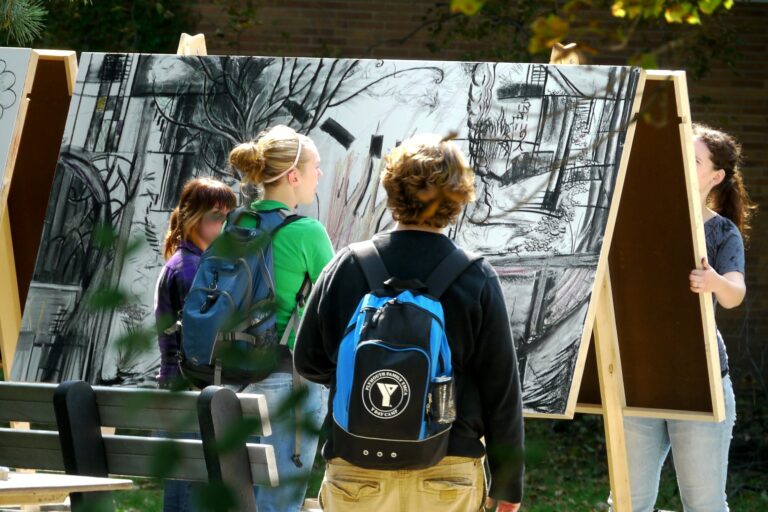David Bering-Porter, assistant professor of film studies in the MSU Department of English, has been awarded a 2015-16 Lilly Fellowship. The Lilly Teaching Fellows program is intended to advance the University’s continuing efforts to support excellence in teaching and learning. It provides a cohort of six to seven pre-tenure faculty with an opportunity to engage in a yearlong exploration of robust scholarship on effective practices in University teaching.

“This offers a great opportunity to take some time and focus on pedagogy,” Bering-Porter says. “Applicants propose a project for funding, and mine dealt with data visualization in media studies utilizing computers and software. Specifically, I proposed working with students to take films apart frame by frame, plot and visualize the images in color, and add metadata to each such as film name, director, location, and so on.”
Bering-Porter adds that while dissecting one or two films can be revealing, by using a computer and ImagePlot open-source visualization software, the team members will be able to focus on 20 films or so, and see what patterns may emerge. They can do the same with TV shows.
“This will be an interesting way to approach formal film studies,” Bering-Porter says, “including film history, and interdisciplinary work. Once the project is completed, a report and poster session is required to demonstrate success.
“From a pedagogical standpoint, I hope to learn how students use the tools provided, learn and ask questions,” he says. “They’ll, in essence, be the proof.”
I proposed working with students to take films apart frame by frame, plot and visualize the images in color, and add metadata to each such as film name, director, location, and so on.
Bering-Porter and his students will utilize services of The Institute for Cyber-Enabled Research (iCER) located in MSU’s High Performance Computing Center (HPCC). The HPCC provides computational hardware and support to MSU faculty, students and researchers.
David Bering-Porter specializes in film studies, new media, and the intersections of media and science studies. Additional research interests focus on critical race and postcolonial theory, psychoanalysis and theories of the subject, experimental film/media, zombie movies, and media archaeology. He has taught courses on race and digital media, body genres in film, and media and memory. David received his Ph.D. in Modern Culture & Media from Brown University.


